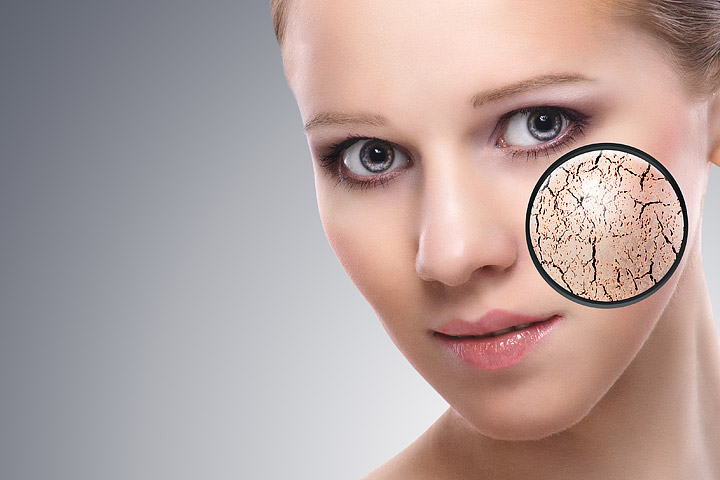
Your skin is not something you’ve probably paid a great deal of attention to, except when it lets you down by getting dry, or developing pimples, but it is quite a remarkable piece of natural engineering. It’s your skin that protects you from bacteria and dirt, it’s your skin that helps to regulate your body temperature, and it’s your skin that keeps the water out when you get wet. If you ever wanted to know more about the largest organ you have, here are ten amazing facts about the skin that you live in.
1. Skin has three layers
There are three layers of your skin. The innermost layer is called the subcutis and it is made up of collagen and fat. The middle layer is called the dermis and that is what makes up nearly 90% of the thickness of your skin. The outer layer is called the epidermis and its job is to protect you from dirt and germs.
2. Your skin works hard to regulate your body temperature
Another one of interesting facts about skin is that it does an amazing job of cooling you down, when things get a bit too warm, and keeping you warm, when it gets chilly. When the sun comes out, you sweat, and that’s to help keep you cool. When it gets cold, the blood vessels in your skin contract, and that’s to keep the warm blood away from the cold air.
3. You are covered in bacteria
Your skin is crawling with bacteria that live in little communities known as skin microbiota. In fact, you have quite a diverse little collection of bacteria living on your skin, but don’t worry; they don’t do you any harm. In fact, they actually help the immune system by fighting any bad, disease causing, bacteria that you might come into contact with.
4. Your skin can tell you when you are unwell
You should really take more notice of what your skin is trying to tell you, because changes in the skin could mean that you are unwell. Dull, grey looking skin could be a sign that you are run down, flushed skin could mean that you have a fever or feeling stressed out. Any noticeable changes in your skin could be as a result of another underlying health issue.
5. Skin gets its colour from melanin
Everyone has the same amount of cells that the produce the pigment, melanin, which is what gives skin its colour, but the amount of melanin produced, varies from person to person. That’s why some of us have darker skin than others. Darker skin provides better protection from ultra-violate light, which is why darker skinned people originated from the sunnier parts of the world.
6. Body odour comes from bacteria
If you have ever wondered why the sweat under your arms causes body odour more than elsewhere on your body, it’s because it is a different kind of sweat. Body odour is caused when bacteria feed on a greasy kind of sweat that emitted from porcine sweat glands. These glands are found primarily under the arms and around the genitals.
7. Skin accounts for 15% of your body mass
One of interesting facts about skin is that, in addition to being the largest organ of the body, your skin makes up about 15% of the average person’s body weight. You have about 18.5 square feet of skin covering your body, so it’s no wonder that it is the largest organ you have.
8. Your skin is constantly regenerating itself
Your skin cells are dying and regenerating every single day and that effectively means that you get a brand new layer of skin every 28 days. Your skin does exfoliate itself naturally, but dead skin cells can stay on your skin, which is why exfoliating will brighten your skin and make it look more healthy.
9. The skin on your lips is 200 times more sensitive than the skin on your fingers
The skin on your fingertips and on your lips are the most sensitive areas of skin, but the lips are 200 times as sensitive as even your fingertips are. The level of sensitivity is down to receptor cells, which help us to fathom out the world around us. That’s why babies put things in their mouths; they are trying to learn more about an object.
10. Most of the dust in your home is dead skin cells
Most of the dust that accumulates around the home is dead skin cells. As a part of the regenerative process, we shed about 40,000 skin cells every minute. There is also dirt and other particles in house dust, but the majority of what you vacuum up is your own dead skin cells.




Leave a Reply